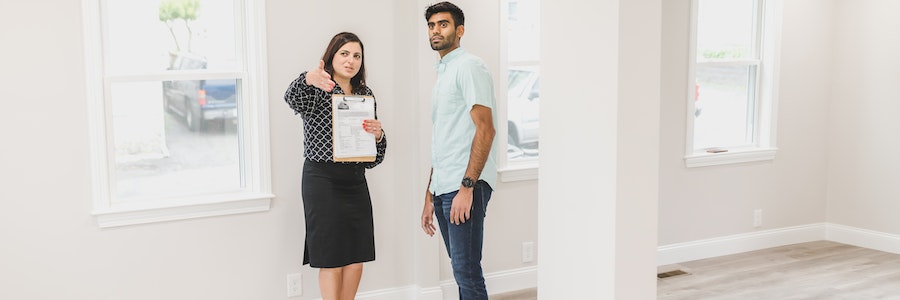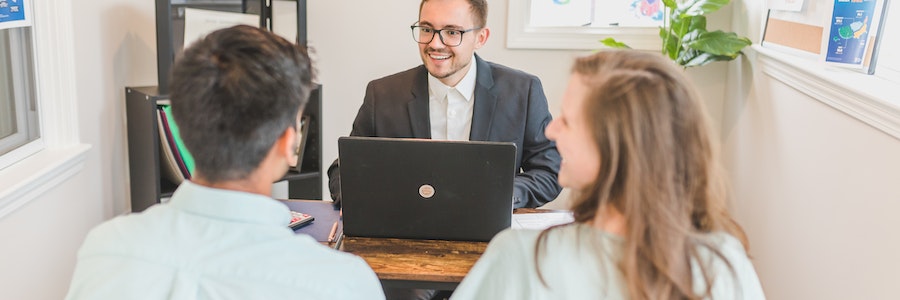How To Buy A House To Rent Out
How To Buy A House To Rent Out

Buy To Rent In Charlotte
Financial security requires investing money to grow. Your savings account won’t grow much, CDs are lousy, and the stock market is often risky. That’s why the smart money is on diversifying your investments with real estate.
Here’s what you need to know about purchasing rental properties for those entering the market for the first time.
Buying Your First Rental Property
Buying a house to rent could readily boost your monthly income. But, just the same, there’s much to consider before purchasing your first rental. For example, you need to consider the type of property, how to screen tenants, and how to handle property management.
Lenders view investment properties differently than primary homes. They require a more significant down payment and higher mortgage rates to compensate for the risk. They will see you as more likely to default on a home you don’t live in if you run into financial problems.
Before buying another home as a rental property, be sure you have a solid down payment, a contingency plan if you lose your renters, and a strategy to manage the property—whether that’s something you intend to do yourself or if you’ll be hiring a property management company.

Will This Be a Good Investment?
While there are no guarantees, when real estate investments go well, they can significantly increase your income. Real estate appreciates; therefore, your investment goes up. As you pay off the mortgage and the property appreciates, you build equity or the amount you’d get if you sold it today.
As for rent, most experts recommend looking for 2% of the initial cost of the property to maintain a positive cash flow. Higher than that might mean an empty property that makes no money. Lower than that will end up costing you.
The Ups and Downs Of Being a Landlord
Landlords have a lot of responsibility on their shoulders, but it often pays off financially. Here’s what to think about when becoming a landlord.
Being a landlord comes with a lot of responsibility. But, on the other hand, the payoff can be substantial.

The Positive Side Of Purchasing a Rental Property
- Rent income after expenses can go toward retirement or other financial goals.
- The rent often covers the mortgage, repairs, and other expenses.
- Many home maintenance and repair costs can be written off as business expenses.
- Rental income isn’t taxed for social security.
- Real estate isn’t as volatile as the stock market.
You should also be aware that in North Carolina, rental income is taxed as ordinary income (5.25%), and operating expenses can bring the bill down.
The Negative Side Of Purchasing a Rental Property
- Maintaining the property can be a challenge. You’re responsible for any mistakes and obliged to fix them promptly.
- You never know if a tenant will be destructive or default on rent.
- Long-distance investing requires a costly property management company.
- You must honor a lease even if you need to exit your investment quickly.
- Despite everything, your investment might fail.
Critical Steps To Buying a Rental Property
Before you go out and invest in your first rental property, consider the following steps.
Decide If You Want Ready-To-Move-In Or a Fixer-Upper
You can buy a ready-to-rent home or an undervalued one that needs work. Choose a strategy before house-hunting.
If you’re handy, you can buy an undervalued house, fix it up, and rent it out. Property upgrades should increase both rental income and property value. In addition, most real estate experts feel the lower purchase price makes this a worthwhile investment if you can handle the repairs and upgrades.
If you’re eager to start renting or don’t have the time, skill, or extra funds for repairs, buying a move-in-ready home would be the way to go. Of course, you start paying more, but you can also save yourself a lot of extra headaches.
Research the Area
Do your research before buying a home and look at the neighborhood. Find out the average rent, the number of tenants, and if the home you’re considering buying is what local renters want.
You might know what you want to charge for rent, but that doesn’t mean local renters agree. A realtor or appraiser can tell you the area’s average rent. Once you know how much rent you can charge, calculate if buying the home makes sense. Is it enough to meet your monthly mortgage, real estate taxes, home insurance, and maintenance or repair costs?
Otherwise, you may want to look elsewhere. Investing in an area that can’t support a high enough rent will leave you upside down at the very start.

Managing Debts and Financing
Purchasing your first rental property can be expensive. The landlord is ultimately responsible for just about everything. If a roof leaks or a furnace breaks, it’s up to you to fix or replace them right away.
You may not have extra funds for rental home emergencies if you have consumer debt. Pay off consumer debt before buying a property to prepare for sudden expenses.
Also, remember that financing an investment property differs from financing your primary residence. Investment financing is risky, so lenders will look for applicants with good credit and reliable income.
Check your credit rating at least a few months before buying a house to rent. Be on the lookout for the following.
- High credit lines you can pay off.
- Collections that can be settled and discharged.
- Errors on your credit report can be disputed and fixed.
- Any payment agreements that have fallen behind that can be caught up on.
Seek Legal Advice
Before purchasing your first rental property, know your commitments. A lawyer can assist you with leasing agreements and other legal issues connected with rental properties.

To Buy Or Not To Buy
Residential rental properties can be an excellent source of monthly cash flow or for investing in the future.
While the process involves considerable planning and responsibility, the payoff can be substantial and often be the start of further real estate investments.
If you have any questions, consult our qualified and experienced home investment advisory company for more information!







